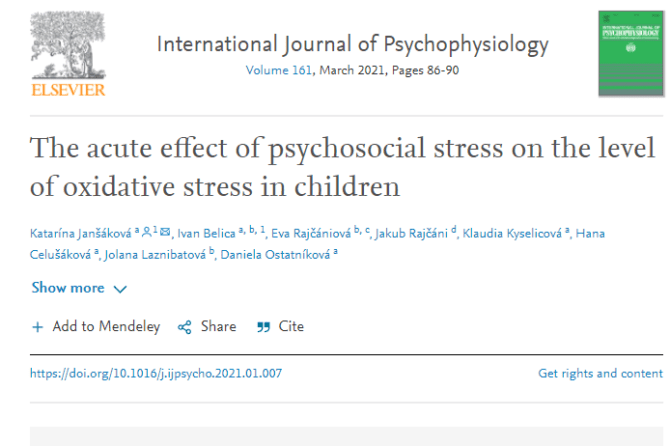
AUTORI: Janšáková, K., Belica, I., Rajčániová, E., Rajčáni, J., Kyselicová, K., Celušáková, H., Laznibatová, J. and Ostatníková, D.
ABSTRACT: The effect of chronic stress on oxidative stress (OS) is commonly discussed while the effect of acute stress situation is not fully examined yet. The present study was aimed to analyse whether acute psychosocial strain causes changes in OS and antioxidant status. Unstimulated saliva was collected from 46 healthy prepubertal children during the control and stress day. On the stress day, collection was performed before and after a stress situation induced by the Trier social stress test. Saliva collection during the control day imitated the stress day without the stress strain. Samples were used for analysis of lipid peroxidation, thiobarbituric acid reactive substances (TBARS), advanced glycation end products (AGEs) and markers of antioxidant status, total antioxidant capacity (TAC) and ferric reducing antioxidant power (FRAP). On the stress day, increased level of FRAP was observed in the second saliva collection in comparison with the first collection. Within the same day, no significant changes in the levels of TBARS, AGEs and TAC were observed in samples taken before and after stress strain. Significantly higher levels of TBARS were observed on stress day in comparison to control day. In summary, acute psychosocial stress caused increase of FRAP during the stress day. TBARS did not increase during the stress day in the second sample but it was higher compared to the control day. None of the interactions with gender were statistically significant. It appears the short-term exposure to stress could potentially stimulate antioxidant activity.
Int J Psychophysiol. 2021 Mar;161:86-90


